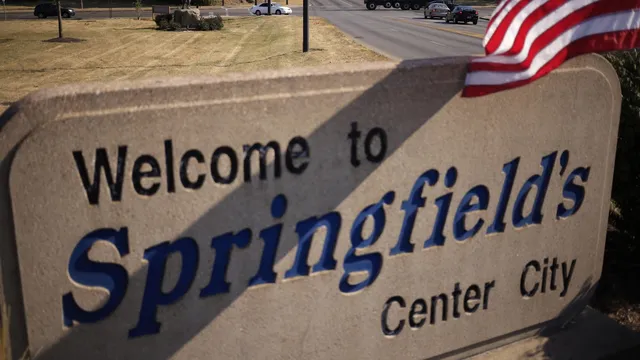
Trump's false claims energize extremists in Springfield, Ohio
2024-09-24 00:00- Trump's false claim about Haitian migrants eating pets in Springfield, Ohio, shocked many and excited extremist groups.
- The Blood Tribe, a neo-Nazi group, celebrated the amplification of this narrative, viewing it as a recruitment opportunity.
- The situation highlights the dangers of political rhetoric in energizing extremist ideologies and creating fear in communities.
Express your sentiment!
Insights
During a recent debate, former President Donald Trump made a false claim that Haitian migrants in Springfield, Ohio, were eating pets. This statement shocked many, but it particularly excited extremist groups, including neo-Nazis and white supremacists, who had been attempting to mainstream this racist narrative. The Blood Tribe, a neo-Nazi group, celebrated Trump's mention of the pet-eating claim, asserting that they had successfully brought Springfield into public discourse. They had previously circulated this narrative on social media, which gained traction after a right-wing account amplified it. The false claim has been thoroughly debunked, yet it has gained momentum, creating fear within the Springfield community. Extremist leaders view Trump's amplification of the narrative as a potential recruitment opportunity, as it reached a large audience. This situation mirrors a previous instance during the 2020 election when Trump made comments that energized extremist groups, although this time he did not directly reference any specific group. The Southern Poverty Law Center's analysts noted that the excitement among these groups stems from their belief that they can leverage Trump's statements to further their agenda. The Blood Tribe and other white supremacist organizations are now more active in Springfield, hoping to capitalize on the heightened attention and fear surrounding the false narrative. Overall, Trump's remarks have inadvertently provided a platform for extremist ideologies, raising concerns about the implications for community safety and the normalization of hate speech in political discourse.
Contexts
In Springfield, Ohio, a Haitian nonprofit group has filed criminal charges against former President Donald Trump and JD Vance. The charges stem from Trump's false claims about Haitian immigrants during a presidential debate, which have led to significant public safety concerns, including 33 bomb threats and school closures in the area. The group seeks accountability for the chaos and fear generated by these unfounded allegations. The controversy began in August when Trump made misleading statements about legal immigrants, which sparked a series of threats and heightened tensions within the community. This situation reflects the broader implications of political rhetoric on public safety and community relations. Additionally, a Rasmussen Reports survey indicates that many voters anticipate a third assassination attempt on Trump, attributing this to the inflammatory language used by his political adversaries. This climate of fear is exacerbated by Trump's continued engagement with the public despite the threats against him. As the 2024 election approaches, Trump's claims and the resulting backlash highlight the challenges he faces, particularly regarding immigration policy and public perception. The situation in Springfield serves as a microcosm of the national discourse surrounding Trump's rhetoric and its potential consequences.